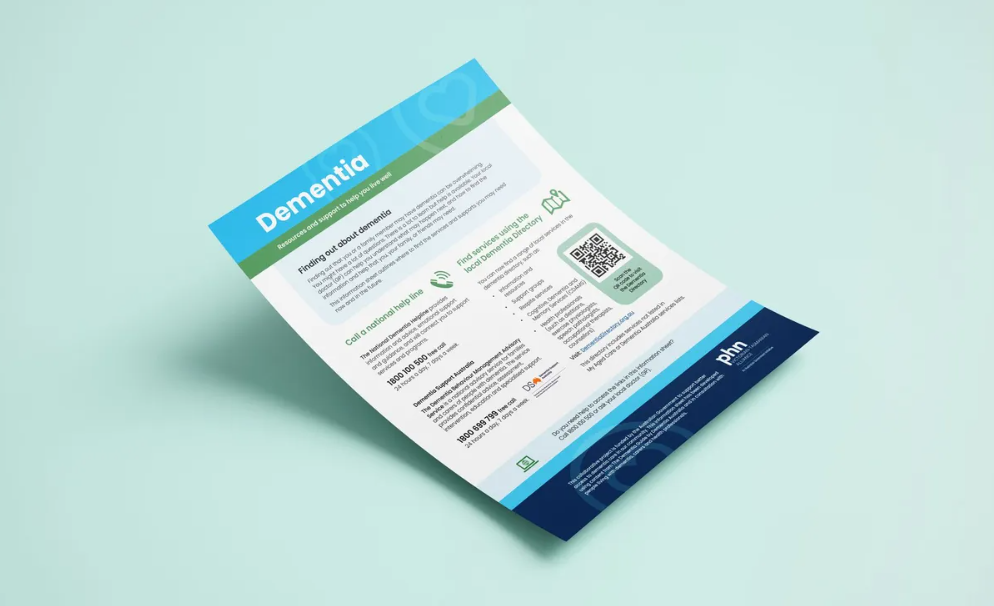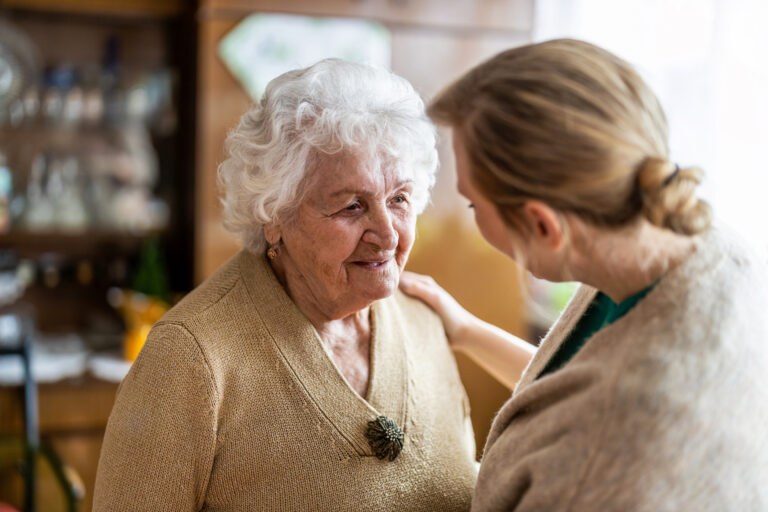Diagnosis, treatment and support for dementia are more important than ever, with more than 400,000 Australians currently living with the condition. The number is predicted to more than double in the next 25 years.
The number of people living with dementia in the Eastern Melbourne Primary Health Network catchment is about 25,000.
In Australia, dementia is the leading cause of death for women, and the second-leading cause of death overall. It is the third highest cause of disease burden.
Recognising that a dementia diagnosis is complex and time consuming, a suite of resources has been developed to help GPs diagnose and care for people with the condition. They provide clinicians with clinical tools, referral and consumer resources and professional training.
The package below represents a collaboration between Victorian and Tasmanian primary health networks and includes:
- New and revised dementia HealthPathways
- Patient information in multiple languages and local Dementia Directory
- New dementia training
New and revised dementia HealthPathways
There are 4 up-to-date clinical pathways available to assist GPs:
- Cognitive impairment and dementia
This is the main clinical pathway outlining assessment, management and referral for people experiencing memory loss or who have been diagnosed with dementia. - Behavioural and psychological symptoms of dementia (BPSD)
This pathway outlines assessment, management and referral related to non-cognitive symptoms of dementia such as aggression, agitation, depression, wandering and disinhibited behaviours. - Five-minute neurological exam for patients with possible dementia
This is a focused neurological examination suitable for a general practice setting. - Medications for dementia
These outline use of cholinesterase inhibitors in management of certain types of dementia.
Referral pages on HealthPathways have also been updated to include information about referring to local cognitive, dementia and memory service (CDAMS) clinics for diagnosis, as well as services to assist with behaviour management. Also added are resources such as national helplines, carer support services, respite providers and local support groups.

Clinicians can access the clinical and referral pathways and information for patients at HealthPathways Melbourne.
Patient information in multiple languages and local dementia service directory
Research by Dementia Australia found that people felt overwhelmed with information at the time of a dementia diagnosis. Hard copy resources, to be used when ready, are preferred.
Responding to this, we have produced a consumer information sheet, Dementia: resources and support to help you live well, for GPs and other service providers to give to patients at the time of diagnosis, for later reference.

It includes information about key organisations, including Dementia Australia, Carer Gateway, My Aged Care, and the NDIS.
It was developed by, and tested with, consumers, carers, people with lived experience, representatives from culturally and linguistically diverse communities, allied health and primary care clinicians and a range of partner organisations. Find out more here.
- It can be downloaded here in English, Greek, Italian, Simplified Chinese and Vietnamese.
- Clinicians can it under ‘Information for patients’ on HealthPathways Melbourne.
It also includes a QR code to the new Dementia Directory, available in the eastern suburbs of Melbourne.
Local directories of dementia-relevant services have been created by each primary health network. Dementia Australia Helpline operators will use these to support carers, families and patients.
New dementia training
Dementia Demystified is a new training course created in conjunction with Dementia Training Australia and designed, developed and facilitated by GPs for GPs, GP registrars, practice nurses, nurse practitioners and other health professionals in the primary care setting.

This tailored training package, which is delivered by Dementia Training Australia, covers:
- Demystifying Dementia – session 1: Recognising dementia in general practice
- Demystifying Dementia – session 2: Post-diagnostic care of dementia in general practice
Applying GP friendly frameworks to better understand dementia, and a step wise approach to diagnosing dementia in general practice.
A step wise approach to initiating the post diagnostic care of dementia in general practice. Includes palliative care and advance care planning.
For more information about this project in Victoria and Tasmania visit VTPHNA Dementia Care Resources.
